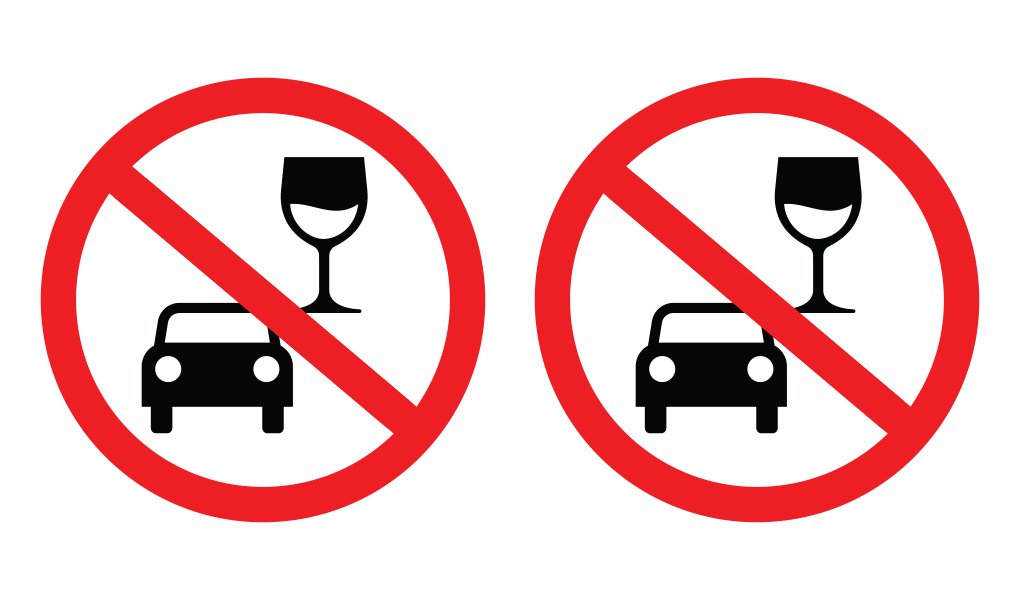Understanding the immediate and long-term repercussions of impaired driving in Alberta is crucial for drivers and concerned citizens. This guide outlines the province's impaired driving laws, explains the penalties involved, and walks you through the post-incident process, equipping you with the information needed to navigate these serious proceedings.
Key Takeaways
• Alberta's impaired driving laws apply to all modes of transportation and a wide range of substances. They enact serious administrative and criminal penalties, including immediate roadside sanctions, to deter impaired driving and promote road safety.
• Drivers with a BAC (Blood Alcohol Concentration) over the legal limit face immediate penalties, such as licence suspension and vehicle impoundment. However, they can appeal and participate in programs like the Ignition Interlock Program to rehabilitate and prevent future offences.
• A sound legal defence strategy is critical in navigating the consequences of impaired driving charges. Seeking immediate legal representation is essential to protect your rights and mitigate legal repercussions.
Understanding Alberta's Impaired Driving Legislation
When you get behind the wheel in Alberta, you're not just operating a vehicle—you're taking on responsibility under a comprehensive legal framework designed to prevent impaired driving. Alberta's impaired driving laws are a testament to the province's commitment to road safety, encompassing enforcement, education, and monitoring. These laws apply to all modes of transportation—on land, in the air, or on water—and cover a wide range of substances, including alcohol, drugs, prescription and over-the-counter medications, and even fatigue.
The spectrum of offences under these laws is broad, and the consequences can be severe. From administrative penalties to criminal charges, the legal implications of driving impaired are designed to deter such behaviour and underscore the gravity of these actions. Being mindful of the rules that govern our roads is about personal safety and fulfilling our legal responsibilities as members of the driving community
The Legal Limits for Blood Alcohol Concentration (BAC)
Blood alcohol concentration (BAC) is a metric used to measure the level of alcohol intoxication. In Alberta, the law is clear: a maximum legal BAC of 0.08 is the line in the sand for a driver's blood alcohol concentration. Cross this threshold, and you're endangering lives and facing escalating penalties, including significant fines, licence suspension, or even imprisonment.
The rules are even stricter for new drivers and those under the Graduated Driver's Licence (GDL) program. A zero-tolerance policy for any detected amount of cannabis or illegal drugs in their blood ensures that these drivers understand the importance of sobriety from the very start of their driving careers.
Immediate Roadside Sanctions (IRS): What You Need to Know
Picture a scenario where you're pulled over and found to be driving with a BAC above the legal limit. Under Alberta's Provincial Administrative Penalties Act, the Immediate Roadside Sanctions (IRS) program allows police officers to issue a Notice of Administrative Penalty on the spot, initiating an immediate licence suspension. This program targets high-risk drivers, focusing on deterring repeat offences through augmented penalties.
It's worth noting that while the IRS program swiftly imposes administrative penalties, it doesn't replace the traditional legal process. Should circumstances warrant it, drivers may still face criminal impaired driving charges under the Criminal Code of Canada, with all the accompanying legal ramifications.
Implications of Refusing a Breath Sample
When asked to provide a breath sample, choosing to refuse is a decision fraught with immediate and long-term consequences. In Alberta, if you legally refuse to comply with this request, you're not just avoiding a test but potentially committing a criminal offence. Such a refusal leads to immediate administrative actions, including licence suspension and vehicle impoundment, and that's in addition to the possibility of facing criminal charges.
Dealing with Administrative Penalties and Criminal Charges
Facing the consequences of impaired driving in Alberta can be a harrowing experience. A complex web of administrative penalties and criminal charges can affect every facet of your life. Criminal charges are typically reserved for severe cases involving subsequent offences or incidents resulting in injury or property damage. The gravity of such charges underscores the importance of seeking representation immediately to navigate the process effectively and protect your rights.
Your chosen representative becomes your navigator, guiding you through the stormy waters of proceedings, from disputing administrative penalties to preparing for court appearances. Alberta's overarching goal in penalizing impaired driving is not to punish but to deter such behaviour and promote the safety of all road users.
From Vehicle Seizure to Licence Suspension: The Administrative Path
The administration of justice begins immediately upon being caught driving impaired. Those with a BAC of 0.08 or higher face an immediate driving prohibition and a vehicle impoundment that lasts several days. Drivers in the BAC range of 0.05 to 0.08 are not spared either; they also face swift administrative penalties, such as a short-term licence suspension and vehicle seizure, although criminal prosecution is not pursued in these cases.
After an impaired driving incident, a driver faces a mandatory suspension period, during which they must complete the Ignition Interlock Program to regain limited driving privileges. Once issued, an administrative penalty leads to an immediate suspension or disqualification, with a Confirmation of Suspension sent to the driver's address to formalize the sanction. Drivers are given a short window of seven days to appeal the administrative penalty, highlighting the urgency of responding to these matters.
Facing Criminal Impaired Driving Charges: The Court System's Role
Regarding criminal impaired driving charges, the court system holds the authority to determine the fate of the accused, with possible outcomes ranging from fines to jail time. Convictions for impaired driving carry significant repercussions, including mandatory participation in alcohol education programs, driving prohibitions, and lasting marks on both driving and criminal records. A criminal record can have enduring effects on an individual's life, underscoring the importance of avoiding such charges.
The Ignition Interlock Program and Rehabilitation
For those convicted of impaired driving in Alberta, the road to redemption often includes participation in the Ignition Interlock Program, a pivotal part of the province's rehabilitation efforts. This program mandates drivers to demonstrate their ability to operate a vehicle without alcohol influence, fostering trust and showcasing their commitment to safe driving practices.
Alcohol education programs are central to this journey toward recovery. These initiatives provide drivers with essential knowledge and tools to prevent future impaired driving incidents. They go beyond punitive measures, serving as transformative experiences that promote a culture of responsibility and safety on Alberta's roads.
Starting Over: The Ignition Interlock Program
The Ignition Interlock Program offers a lifeline to those eager to regain driving privileges while under suspension for impaired driving. This program mandates the installation of an ignition interlock device, a sophisticated breathalyzer that prevents a vehicle's engine from starting if the driver's BAC exceeds a set threshold.
Applying to the program involves a multi-step process, including the following requirements:
1. Proof of residency
2. Absence of other suspensions
3. Completion of reinstatement conditions
4. Participation in an educational course tailored to the nature of the offence
Participants are also responsible for the financial costs associated with the program, such as installation and monthly rental fees, reflecting the actual expenses incurred due to impaired driving.
Mandatory Alcohol Education Programs for Impaired Drivers
Education plays a crucial role in the rehabilitation of individuals dealing with the consequences of impaired driving. The Alberta Impaired Driver Remedial Education Program offers tailored courses such as 'Planning' for first-time offenders and 'IMPACT' for repeat offenders, the latter involving an intensive weekend of assessment and pre-treatment.
These programs are designed to enhance road safety by addressing the root causes of substance use and driving, aiming to reduce the likelihood of future offences. Alberta's investment in education supports individuals and contributes to the overall safety of its roads.
Preventive Measures and Planning Ahead
Prevention is the most effective strategy against impaired driving, and it requires collective effort. Individuals, communities, law enforcement, and the government must collaborate to mitigate this persistent issue. Proactive measures that can protect lives and prevent the life-altering consequences of impaired driving include:
• Designated driver programs
• Checkstop initiatives
• Public awareness campaigns
• Stricter penalties for impaired driving
• Education and outreach programs
Implementing these measures can foster a safer environment and reduce the incidence of impaired driving.
The Role of Prescription Drugs and Standardized Field Sobriety Test
Alcohol isn't the only substance that can impair one's ability to drive. Prescription drugs can also affect driving abilities, potentially leading to criminal charges if they impair the capacity to drive safely. When a police officer suspects impairment, they may conduct a Standard Field Sobriety Test (SFST) or a Drug Recognition Expert (DRE) evaluation to assess whether the driver is under the influence of drugs or alcohol.
Observable signs of impairment, such as red eyes or slurred speech, may prompt the officer to request an oral fluid sample, which can detect substances like THC or cocaine. A positive result on the initial oral fluid test and observable signs can lead to further testing, including a blood sample to measure substance levels accurately.
Zero Tolerance Policy and Graduated Driver's Licence Holders
For novice drivers in Alberta, the message is clear: there is no room for alcohol in your system while driving. The zero-tolerance policy is enforced with immediate consequences, including licence suspension, vehicle seizure, and financial penalties, even for a first offence.
This policy is critical in instilling responsible driving habits from the beginning of one's motor vehicle driving experience.
Your Rights and ResponsibilitieS When Stopped by Police
An encounter with law enforcement due to suspected impaired driving can be daunting, but understanding your rights and responsibilities is crucial. The right to representation is paramount, and you should exercise it to ensure your voice is heard and your rights are protected.
Providing an Oral Fluid or Blood Sample
When stopped by a police officer, you may be asked to provide an oral fluid sample if there is reasonable suspicion of drug use. Non-invasive drug screeners are used to detect the presence of certain drugs quickly, and a positive result can lead to the requirement of a blood sample for further verification.
SUMMARY
Navigating Alberta's impaired driving laws is a significant challenge. From understanding the legal limits on blood alcohol concentration to facing Immediate Roadside Sanctions and potential criminal charges, the implications are extensive and diverse. Rehabilitation efforts, such as the Ignition Interlock Program and mandatory alcohol education courses, highlight the province's commitment to improving road safety and reforming driving behaviours.
Let this serve as a clear message to all drivers in Alberta: the best defence is a strong offense. By staying informed, planning ahead, and making responsible choices, we can all contribute to safer roads and a more resilient community. Drive smart, drive sober, and remember that knowledge is power—especially when behind the wheel.
Frequently Asked Questions
What is the maximum legal blood alcohol concentration (BAC) in Alberta?
In Alberta, the maximum legal blood alcohol concentration (BAC) is 0.08, as per federal Canadian law. For Graduated Driver's Licence holders, there is a zero-tolerance policy for any detectable amount of cannabis or illegal drugs in their blood.
What are Immediate Roadside Sanctions (IRS) in Alberta?
Immediate Roadside Sanctions (IRS) in Alberta allow police officers to issue on-the-spot penalties, such as a Notice of Administrative Penalty and licence suspensions, to drivers suspected of being impaired. This helps to deter impaired driving and keep the roads safe for everyone.
What happens if I refuse to provide a breath sample?
If you refuse to provide a breath sample during a traffic stop, you may face criminal charges and immediate administrative penalties, such as licence suspension and vehicle impoundment. It's vital to comply with the legal requirement to provide a breath sample when requested by law enforcement.
Can I drive after being convicted of impaired driving in Alberta?
Yes, convicted drivers in Alberta can drive after participating in the Ignition Interlock Program and meeting its criteria.
Do I have the right to legal representation if charged with impaired driving?
Individuals charged with impaired driving have the right to consult with a defence lawyer for fair representation in the legal process.



